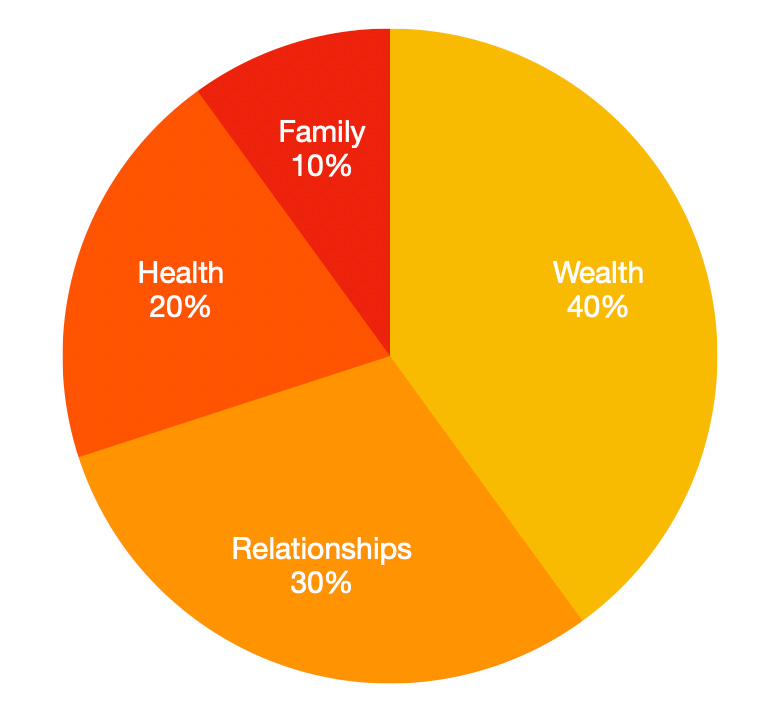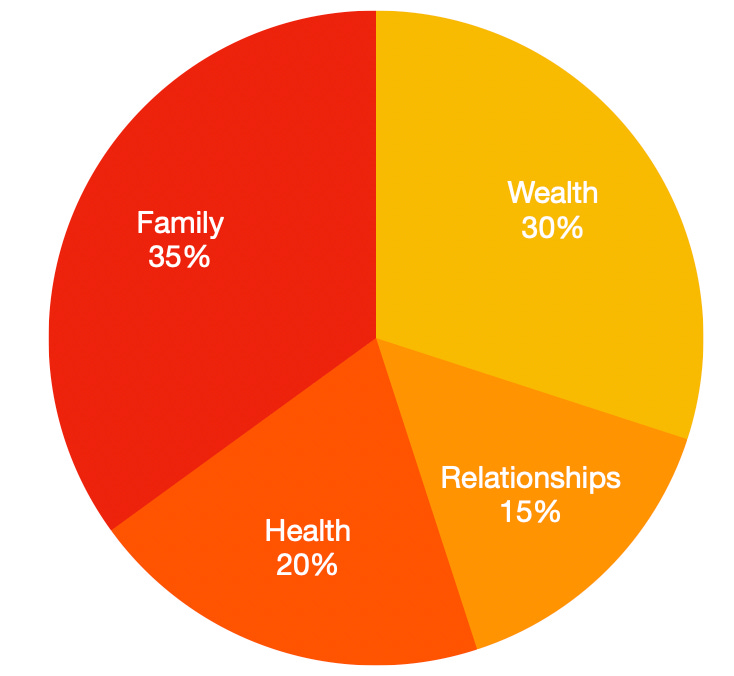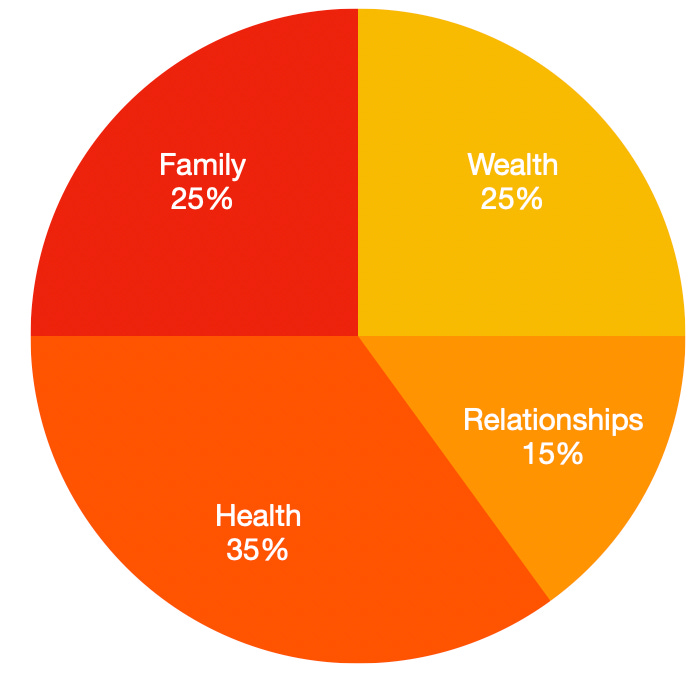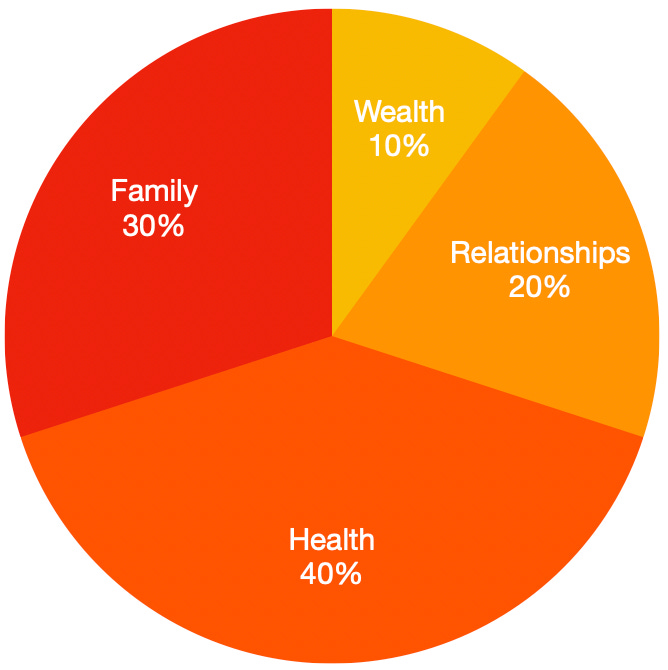Intentional Imbalance
The Four Horsemen of Life: Health, Wealth, Family, and Relationships
Life is a zero-sum game. Hours spent crushing it at work are hours not spent with your kids. Every morning dedicated to CrossFit or jiu-jitsu is a morning you're not closing deals or responding to emails. The "work-life balance" myth is just that, a myth peddled by LinkedIn influencers and wellness coaches who've never built anything substantial.
Here's the truth: you can have it all, just not all at once.
I recently talked with a UT student about his plans after graduating. He’s looking into grad school and eventually plans to run a clinic. The conversation started to get into some of the topics I have recently been writing about. We discussed the four primary buckets that define a life well-lived: Health, Wealth, Family and Relationships. These aren't just categories, they are competing forces that demand your attention, like hungry toddlers at dinner time. And like toddlers, they don't share well.
The Young Lion Phase (20s-30s)
Everyone should fear people in their 20s. Your 20s and early 30s are when you have maximum energy and minimum wisdom. This is when you should go to HAM for wealth creation, skill building, and relationship building. Your body can handle the 80-hour weeks, the networking events, and the 6 AM workouts. Health feels infinite (it's not), family is something you'll get to "later," and relationships are both your entertainment and your career accelerant.
The math: 40% Wealth, 30% Relationships, 20% Health, 10% Famil
The Builder Phase (30s-40s)
This is when it gets real. You're likely married, maybe have kids, and your back starts reminding you that you’re not invincible. The wealth machine needs to keep running, but now you're building something bigger than a bank account, a legacy. Family suddenly becomes the headline, not the footnote.
The math: 35% Family, 30% Wealth, 20% Health, 15% Relationships
The Maintenance Phase (50s-60s)
Welcome to the juggling act. Your body starts sending you maintenance requests like a neglected rental property. That wealth you built? Now, it's about preservation, not just accumulation. Your kids are becoming actual people (terrifying), and those relationships you invested in earlier pay dividends unexpectedly. You can also start focusing on work more now that your kids need (or want) less of your attention.
The math: 35% Health, 25% Family, 25% Wealth, 15% Relationships
The Legacy Phase (60s+)
Plot twist: health becomes the main character. Without it, none of the other categories matter. Your wealth should be working for you (if you played the early game right), allowing you to focus on what actually matters: deep relationships, family time, and maintaining your vitality.
The math: 40% Health, 30% Family, 20% Relationships, 10% Wealth
A study by Bronnie Ware, a palliative care nurse, revealed that the top regret of the dying is wishing they had spent more time with family and meaningful relationships. This sobering reminder that no matter how hard we chase wealth and success, it’s our connections with others that give life meaning.
Personally, I believe this study is a bit biased as most people studied are in Hospice and in a time when family and relationships mean so much more. Priorities over your life change, and if you are on your deathbed in your 20s, you may have wished you would have done something more meaningful, like creating a company that provides long-lasting value to the world.
The Life System
News flash: these aren't just abstract disparate categories but interconnected systems. Health fuels your ability to build wealth. Wealth creates opportunities for family. Family provides the foundation for meaningful relationships. And relationships often lead to both wealth and health opportunities. That’s why no category should be absolutely zero.
The secret isn't perfect balance, it's intentional imbalance.
Life is about making hard choices and living with them. It's about understanding that every "yes" to one category is a "no" to another. The winners aren't those who achieve perfect harmony, they're the ones who get comfortable with the discomfort of conscious trade-offs.
So here’s the framework to ensure sanity:
Accept that you can't max out all categories simultaneously
Take a pause and recognize your current life phase and align your priorities accordingly. Keep in mind what is causing you the most amount of stress
Make peace with the fact that something will always feel neglected
Revisit and readjust your allocation regularly, life changes, and so should your focus
Remember: You're not failing if one category is taking a backseat. You're strategizing. And strategy, by definition, is choosing what not to do.
Life's a game of seasons. Play accordingly.
Don’t get captured,
Connect with Zach
Provide Feedback
Also, Check out the Prof Z Project Library, where I have added many resources (books, tools, articles, and podcast recommendations) for different topics such as entrepreneurship, leadership, operations, finance, personal development, real estate, and even health and fitness. It's a free resource, so enjoy a single location for useful things I have found. Send me a message with any suggestions to add to the library.







